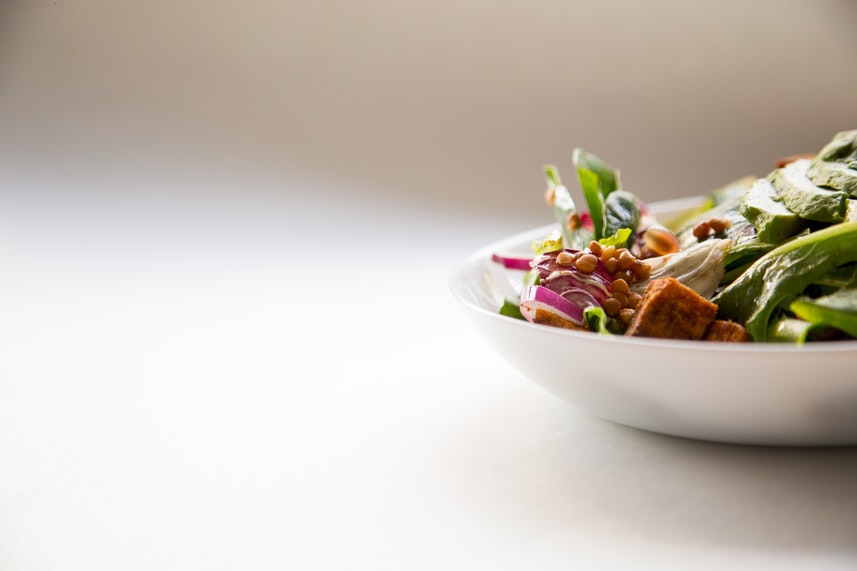If you're not already on the gut-health train, now's the time to hop aboard—because, says McKel Hill, so much of your overall health depends on it. The Nashville-based RDN, coach, and recipe genius behind the food blog Nutrition Stripped is a fan of eating in a way that makes digestion easier and more beneficial. Take a cue from this Well+Good Council member if you want to improve your short-term and long-term health—without making radical changes to your diet. Here's how to get started.
Keeping your gut happy and healthy is one of the secrets to feeling really good every day. Scientific research is still uncovering the many ways our bodies are affected by our microbiome, but emerging studies are shedding light on the importance of several simple habits that could point us in the right direction with arena of health.
Gut health and digestion has always been a favorite topic of mine. From both personal and professional experience, I've seen gut health play an incredibly important role in everyday health. Research suggests that it may affect everything from anxiety levels to workouts, and even postpartum depression—and the good news is that anyone can take a few simple steps toward improving her gut health.
Have a happier, healthier digestive system with these three tips:

1. Practice deep breathing
Deep breathing, as a form of stress management, is especially important to do before meals to help digestion. Long, slow breaths from the belly help activate your parasynthetic nervous system. When this happens, you're technically reaching the "rest and digest" phase that will help your body process foods better, while absorbing more nutrients (and eliminating gas or bloating if you happen to eat fast). Stress management is an important component to gut health, which we've come to understand as more and more research emerges about the gut-brain connection.

2. Eat fermented foods regularly
Fermented foods contain good bacteria and promote healthy digestion. The microflora within foods such as kimchi, tempeh, and sauerkraut create a protective lining in the intestines while boosting our immune system. Aim to eat two or three tablespoons of fermented foods around meal times. This can be before, during, or right after eating your meal. The probiotics are being digested with the rest of your foods, so they can work their magic no matter when you consume them.

3. Enjoy plant-based fiber
It's especially important to eat plenty of plant-based fiber to feed the good bacteria in your gut, AKA pre-biotic rich foods. This keeps your digestive system running smoothly and properly, processing foods and passing waste like clockwork. Examples include bananas, artichoke hearts, dark leafy greens, and fruits.

{{post.sponsorText}}
Make it your goal to get at least 35 grams of this fiber every day. To wrap your head around how much fiber that is, here are a few examples to get you started:
1 cup of cooked quinoa: 4g
1 cup of kale: 5g
1 cup of cooked lentils or black beans: 15g
1 cooked artichoke: 10g
1 cup brussels sprouts: 8g
1 half avocado: 6-7g
The more you keep your gut in mind—and feed it accordingly—the more your gut will love you back.
 McKel Hill, RDN, is a registered dietician nutritionist and the founder of Nutrition Stripped, which treats healthy food as more than just fuel—and gives expert advice on using its nutrients and flavors to make you feel amazing.
McKel Hill, RDN, is a registered dietician nutritionist and the founder of Nutrition Stripped, which treats healthy food as more than just fuel—and gives expert advice on using its nutrients and flavors to make you feel amazing.
What should McKel write about next? Send your questions and suggestions to experts@www.wellandgood.com.
Loading More Posts...